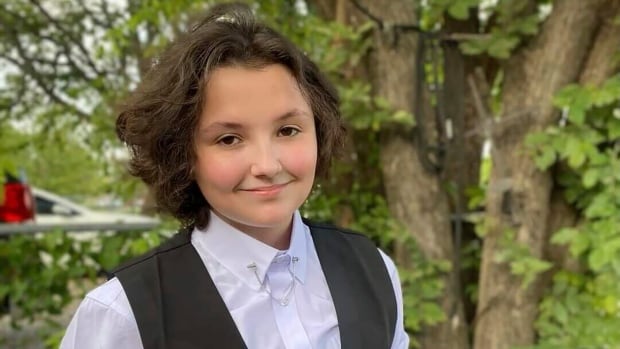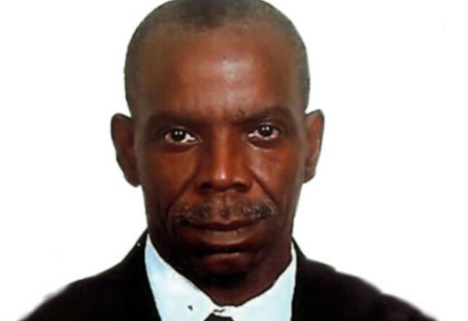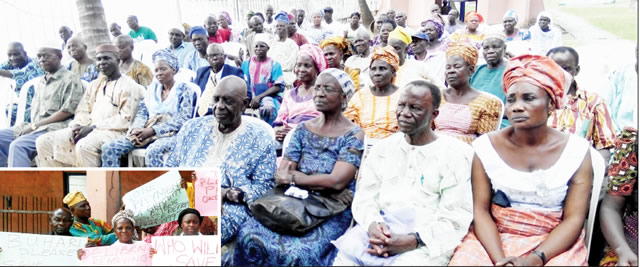Warning: This story contains discussion of suicide and details of physical violence against 2SLGBTQ+ and gender diverse people.
The death of non-binary Oklahoma teen Nex Benedict has become symbolic of the fears expressed by 2SLGBTQ+ people in the U.S. — that hateful rhetoric and restrictive legislation targeting transgender and gender non-conforming people will have tragic consequences.
Nex, who was 16 and of Indigenous heritage, said they had been bullied by other students.
Nex died on Feb. 8, one day after a physical altercation in a high school bathroom. Oklahoma mandates that public school students must use the bathroom that matches the sex on their birth certificates.
The state’s Medical Examiner’s Office is due to release its full autopsy report Wednesday, but a previously-released summary indicated Nex died by suicide and not as a result of injuries sustained in the altercation.
There are many lingering questions and criticisms about that assessment, the investigation into Nex’s death and the events surrounding it.
Here’s what we know and what we don’t know about the life and death of Nex Benedict — and the situation for 2SLGBTQ+ and gender non-conforming people in Oklahoma.
As It Happens6:43Oklahoma nonbinary teen’s death ‘shocking and devastating,’ says advocate
Oklahoma’s Nex Benedict, 16, died a day after an altercation in their high school bathroom. Nex’s grandmother says they were bullied at school because of their gender identity. Police say Nex did not die as a result of injuries sustained in the fight. But whatever their autopsy ultimately reveals, Kylan Durant, president of the Oklahoma Pride Alliance, says his state’s anti-transgender legislation and rhetoric makes kids like Nex unsafe.
What happened to Nex?
Benedict was a Grade 10 student at Owasso High School, in the Tulsa suburb of Owasso.
Sue Benedict, Nex’s biological grandmother and adoptive mother, told The Independent last month that she was called to the school on Feb. 7 after Nex was involved in an altercation. She recounted seeing bruises on Nex’s face and eyes and scratches on the back of their head.
She said she was aware Nex had been the victim of bullying but “didn’t know how bad it had gotten.”
She told The Independent she was angry the school hadn’t called police or an ambulance and later took Nex to a local medical facility and contacted police herself.
At the hospital, Nex and Sue Benedict spoke with Owasso Police Department school resource officer Caleb Thompson, who was wearing a body camera at the time.
WATCH | Owasso Police released bodycam video of interview with Nex Benedict:
Nex told Thompson they overheard three girls making fun of them and their friend while they were all in the bathroom.
Nex admitted throwing water from a plastic bottle before a fight broke out.
“They came at me,” Nex recounted.
“They grabbed onto my hair. I grabbed onto them. I threw one of them into a paper towel dispenser. And then they got my legs out from under me and got me on the ground and started beating the shit out of me.”
Nex told Thompson they “blacked out” after that. Details of their injuries weren’t discussed in the body camera video.
According to a Feb. 20 statement from Owasso Public Schools, the altercation went on for less than two minutes before it was broken up by other students in the bathroom and a school staff member who had been supervising outside.
The day after the altercation in the bathroom, Nex collapsed at home.
Sue Benedict called 911 at approximately 1 p.m. and told the operator Nex’s breathing was shallow and that their “eyes were rolling back” and their hands were “postured” inward. At that point, Benedict told the operator there was no need for her to perform CPR.
Emergency responders arrived at the home within minutes, performed CPR on Nex and transported them to St. Francis Pediatric Emergency Room, in Tulsa. There, doctors later declared Nex dead.
What about Nex’s autopsy?
The Owasso Police Department said in a statement on social media that from the beginning of the investigation, police “observed many indications” that Nex’s death was a suicide.
The Office of the Chief Medical Examiner released a summary autopsy report on March 13 that appeared to back up that assessment.
The report indicated Nex had toxic levels of two drugs in their system and died of an overdose.
One of those drugs was fluoxetine, sold under the brand name Prozac, which is commonly used to treat depression. The other was the antihistamine diphenhydramine, or Benadryl.
The Owasso Police released the audio of Sue Benedict’s 911 call on Feb. 23.
She told the 911 operator that Nex took fluoxetine and quetiapine (Seroquel) at night “for anxiety and mood swings,” but hadn’t taken any that day. In the call, she mentioned Nex had been beaten up the day before and expressed concern that their condition may be related to having hit their head on the bathroom floor.

Have any charges been laid?
On March 21, Tulsa County District Attorney Steve Kunzweiler said in a statement that he agreed with an assessment from detectives that the fight between Nex and the three girls was an “instance of mutual combat” and that juvenile charges were not warranted.
Kunzeweiler said investigators uncovered notes related to suicide but did not provide details.
It’s unclear if the school disciplined any of the other students involved in the Feb. 7 fight, but Sue Benedict told The Independent that school officials had suspended Nex for two weeks.
The U.S. Department of Education is conducting a civil rights investigation into Nex’s death to determine if any laws were broken or whether the school district failed to respond to harassment.
As some U.S. states work to ban gender-affirming care for trans youth, a Toronto psychologist has become one of the most in-demand witnesses called on to question mainstream medical opinion under oath. CBC investigative reporter Jonathan Montpetit breaks down the impact of James Cantor’s work and the reasons he gives for what he does.
The situation for 2SLGBTQ+ people in Oklahoma
Human rights advocates have linked the tragedy of Nex’s death, in part, to a culture of anti-2SLGBTQ+ hate spreading in the U.S., as well as to recent legislation in Oklahoma restricting the rights of transgender and gender non-conforming people.
According to the website Trans Legislation Tracker, there have been 60 anti-transgender bills introduced in the Oklahoma legislature in the first three months of 2024. They are among more than 530 bills the site is tracking nationwide so far this year.
And there is evidence to suggest that the legislation is putting 2SLGBTQ+ people at risk.

The Washington Post analyzed FBI data and found a rise in reported hate crimes in states with laws or policies that restrict the rights of 2SLGBTQ+ and gender non-conforming students.
“It’s hard for me not to draw the line,” Kylan Durant, the president of Oklahoma Pride Alliance, told CBC Radio’s As It Happens last month.
“We’re seeing our leaders do things that do not support our queer youth and here we are.”
Brandon Dilawari, a case manager at Rainbow Youth Project USA, an Indiana-based group that aims to improve the safety and wellness of 2SLGBTQ+ young people, told The Associated Press earlier this month that Nex’s case is “not an isolated incident by any means.”
The group reported a dramatic spike in calls from Oklahoma to its national crisis hotline after news of the teen’s death became public.
Hundreds of bills targeting transgender people and their rights have been introduced in the United States. Andrew Chang is joined by an activist tracking it all. Then, a mom and her trans son explain why they won’t leave their state. | Original air date: Mar. 28, 2023
If you or someone you know is struggling, here’s where to get help:








